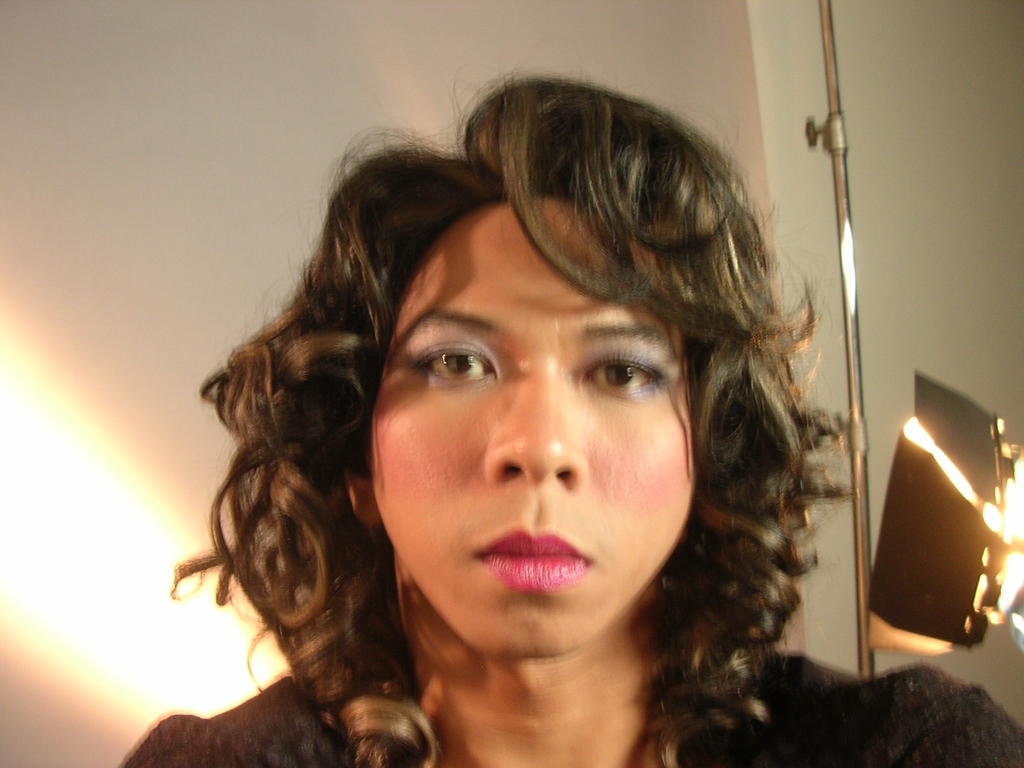Bumiputra Cina: The Aftermath




Here's the review of Bumiputra Cina by June Yap and pix by Irfan Kasban
A process-based performance collaboration between writer and performer Verena Tay and interdisciplinary artist Noor Effendy Ibrahim that explores the conflicted sense of belonging and identity of a contemporary Chinese Singaporean woman coming to terms with the fast-changing landscape that she grew up in - the text written on the performance for its publicity material.
Bumiputra (or bumiputera, and wiki-ed originating from the Sanskrit term ‘Bhumiputra’) - literally ‘prince of the soil’, also translated as ‘son of the soil’ and more politically correct, ‘child of the soil’, is a term that finds unlikely partnership with ‘cina’ or Chinese. In a series of twenty-over vignettes the question of what it means to belong, to be rooted in, or tied down to a piece of land is explored with wry humour and at times cutting accuracy. Accuracy at least in the context of a Chinese female in Singapore. Verena’s examination of her own experience, is extended into that of the everywoman, and further questions as well the nature of the relationship of the term ‘bumiputra’ to even those ‘native’ to the crumbly earth with that raw smell that frankly we do not have a very intimate relationship with these days living in boxes in the sky (flats) where soil is found in pots that line the corridor walkway, an attempt possibly on our part to connect with the land, yet one that is frowned upon within housing board regulations that champion regularity and concrete.
The script which was written first in English, had portions translated into Hokkien, Chinese and Malay, with subtitles in English when the non-English parts were spoken, perhaps already indicating then a detachment from ‘origins’ (English being the ‘pragmatic’ decision made by Singapore for it to progress economically and such), and setting the stage for an analysis of what origins and belonging might mean. The questions ‘Are you Singaporean? Are you Bumiputra?’ were repeated at regular intervals, a question less for the characters than its audiences as the performance unfolded.
As pointed out by a member of the audience during the post-show discussion, the term ‘bumiputra’ itself has different connotations in Singapore than say in Malaysia. In Malaysia, the term has more political implications and its qualifications are quite clear - that one is either from one of the ethnic or indigenous groups of Peninsular Malaysia, Sabah or Sarawak, of Malay culture (speaking Bahasa Melayu, now Bahasa Malaysia) and Muslim; whereas its use in the performance is more of a sociological and anthropological nature. The term used in a broader, and perhaps looser, sense here is an attempt to ‘search for the land beneath your feet’ according to the character The Wild One played by Rizman (I think I might be quoting, notes in the dark are not always very clear come the following morning), an anthropomorphism of the land/earth/nature with a mild case of blood-lust.
The question posed here is: how many generations does it take for one to become no longer of migrant stock? Do you have to wait till you are dead and buried? My grandfather was from China, though he lived most of his life here. He may not have been ‘son’ but he is definitely ‘of the soil’ right now. The introduction of the character Lt. Adnan bin Saidi played by Shahril adds an interesting layer to the performance about the implications of belonging - defending what is considered yours - a premise that the local armed forces use for their recruitment drives. Born in Selangor, of Minangkabau descent, and commemorated for his brave defence at the battle at Pasir Panjang against Japanese invaders, the question that is raised with the character is that if you define yourself as part of the land, would you stay and fight? Of course it may also be argued that the two are not necessarily contingent or related; the question that has not been asked here is why must one belong to only one land? Can one not belong to more?
Earth in all its deep, mysterious, dark and organic glory took centrestage in the performance, with each character sweeping, scooping, toiling at it, lying in it or just letting it trickle through cupped hands. Its presence kept the performance and the abstracted observations about belonging grounded. Soil - what seeds would you plant here… The verdict? 4.5 out of 5 chungkols!


0 Comments:
Post a Comment
Subscribe to Post Comments [Atom]
<< Home